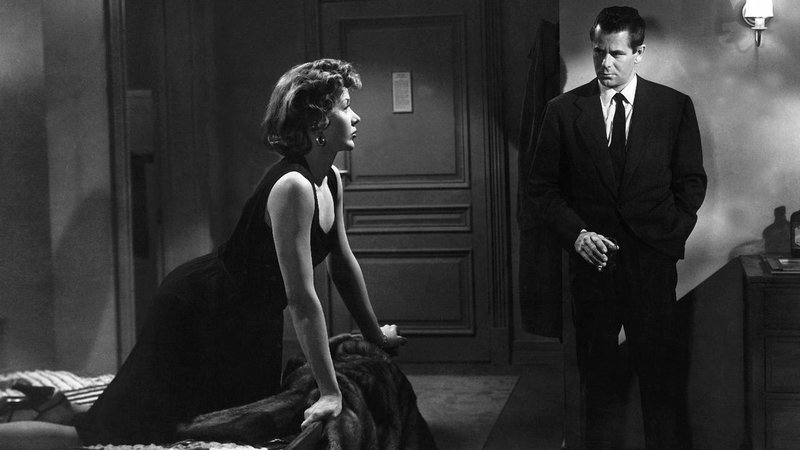
Screened as part of NZIFF 2002
The Big Heat 1953
"Generally considered Lang’s best post-war film, The Big Heat stars Glenn Ford as a police detective engaged in a personally vengeful crusade against organized crime and police corruption. Few films of the 50s, or any period, are more ruthless and uncompromising in their observation of social violence in American society. When a corrupt policeman commits suicide, his respectable wife intercepts a confession letter addressed to the district attorney, and with a phone call to the mob boss secures herself unlimited retirement funds. In Lang’s dark city, the law’s written word has been replaced by a system of unrecorded transactions. It will take the violence of fire to expose the corruption behind the façade. Fire (cigarette burns on the corpse of a witness he refused to believe; flames on the body of his beloved wife, who perishes in an explosion meant for him) transforms naïve detective Glenn Ford into a rogue cop driven by vengeance. Fire seals the revolt of a voluptuous blonde (Gloria Grahame, in a riveting performance) who starts thinking outside her mob-doll role after the gangster she lives with throws scalding coffee on her face. The most formidable among Lang’s exposés, The Big Heat is also the chronicle of an impossible love affair in the uncertain zone separating the living from the dead." — Domietta Torlasco, Pacific Film Archive
"This has been a remarkable year for Sony Pictures’ knowledgeable preservationist Grover Crisp, but nothing exemplifies the perfectionism in his craft better than this restoration of Fritz Lang’s noir masterpiece, one of only two films the director made for Columbia Pictures (the other was Human Desire, also recently restored by Crisp). Neglected, damaged and decomposed, many sections of the original negative had to be replaced and matched, using mainly traditional photo-chemical techniques. The result demonstrates how well this film has aged (particularly when seen properly in a darkened cinema), both visually and in its ability to shock through its uncompromising depiction of criminal violence and police corruption. Best-remembered, of course, is the scalding coffee scene, but equally memorable are the performances: Glenn Ford as obsessive avenging cop Dave Bannion, Gloria Grahame’s sardonic gangster’s moll (‘showily effective’, said Penelope Houston grudgingly in Sight and Sound 48 years ago), and Lee Marvin at his sadistic best as the caffeine-wielding thug; all well served by Charles Lang’s multi-shaded black-and-white photography." — Clyde Jeavons, London Film Festival